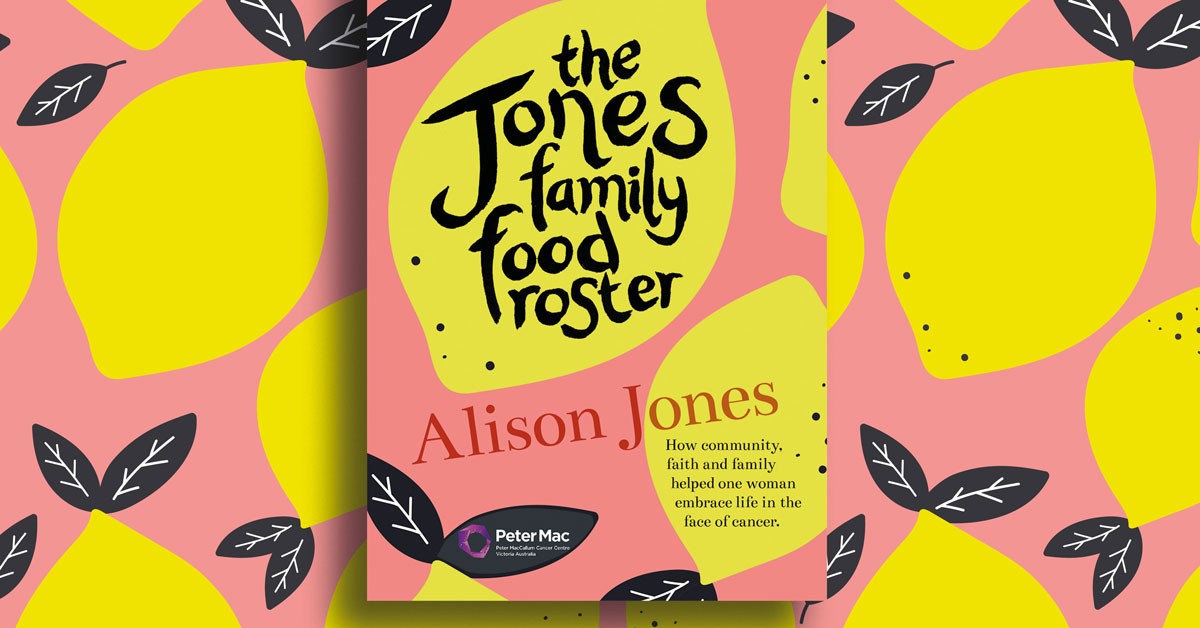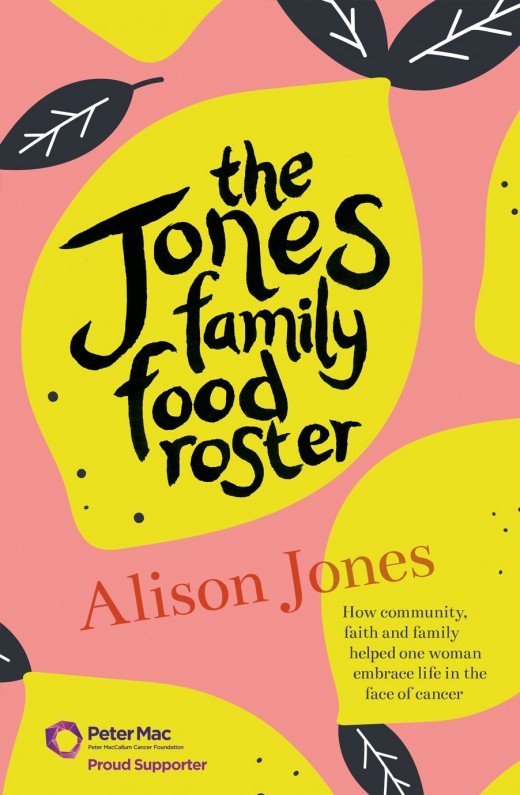News

News > Interview
Q + A with Alison Jones
Alison Jones, author of The Jones Family Food Roster, talks to us about her new book.
How did the book come about?
At the time of my diagnosis of multiple myeloma, cancer of the bone marrow, I was juggling the demands of having five children aged between nine and sixteen, a full time job, and numerous community commitments. But it was my community that was there to pick me up. A friend organised ‘The Jones Family Food Roster’ and every evening delicious, hot meals – cooked with love to nurture and to heal – were brought to my family of seven from the women within my Jewish community, including several I barely knew. Arriving home from the hospital after a day of treatment I would discover on my back doorstep steaming soups, sizzling casseroles, or roasted chickens.
As a busy mother I had tended to cook the same six or so recipes for my children day after day, week after week, month after month. As the disease was clawed back and I began to improve, I decided to ask the women for their recipes. Initially, I was going to photocopy and distribute them to everyone on the roster. Then I considered having them printed in a spiral bound recipe book, which morphed into a glossy cookbook with explanatory text and magnificent photos.
However, when I walked into a bookshop to do some research I realised there were hundreds of cookbooks for sale – how could I possibly be successful in this crowded market?
I managed to speak with a publisher who suggested that instead of writing a cookbook with text, I flip the concept and write a memoir with recipes. I was a maths teacher and had always seen myself as having strengths in numeracy rather than literacy, so I decided to hone my writing skills. I enrolled in a two year Professional Writing and Editing course at Melbourne’s RMIT. Five years later I completed my memoir, The Jones Family Food Roster. Even before it was picked up by Black Inc. publishers I had decided that all author royalties would be donated to the Peter Mac Foundation for cancer research.
How did the food roster affect you and your family during your treatment/recovery?
Every evening, women brought scrumptious meals and the entire family tasted the love cooked into the food; these dinners tasted different to food prepared in a restaurant. Apart from the practical aspect of feeding five hungry children, this care and support was empowering. We were not alone. Being able to share my fears and concerns with these women somehow diluted my dread.
Why did you want to tell this story?
When I was diagnosed my disease was severe, but with treatment at the Peter MacCallum Cancer Centre and support from my community, ten years later I am feeling strong and fit and have written a book. The story is about the impact and power of community, parenting during a time of crisis, empowerment during any challenge – including difficulties regarding employment, relationships and health, and most importantly, hope.
I am also planning to raise $1 million for cancer research at the Peter MacCallum Cancer Centre. On my day of diagnosis, in the fog of denial, I was told that because of cancer research myeloma patients were doing better now than ever before. I want to raise this money so that other recently diagnosed and terrified patients can hear words of hope, just as I did.
If you would like to help me reach this ambitious goal please go to the following site:
www.everydayhero.com.au/event/AlisonJonesGifts
What does the idea of community mean to you now?
Communities are transformative. Without a doubt, our lives have been enriched by being part of a vibrant and supportive community. With communities around the world crumbling – in the United Kingdom there is now a Minister for Loneliness – the fabric of society deteriorates. My community shares our happiness during joyous times and cares for us during challenges. Consider introducing yourself to your new neighbours and baking them a cake!
What was the most surprising part of writing this memoir?
I am a maths teacher and felt I did not have strong literary skills. When I considered writing a memoir I enrolled in the Professional Writing and Editing Course and now, thanks to Black Inc., have a published book. Too often we define ourselves narrowly – we build walls around ourselves that limit and control us. Reflecting on this in the book, I have learnt that I am capable of so much more if I shatter those walls, believe in myself, and have the confidence to give things a go.
Who do you hope reads your book?
The memoir has many themes and will appeal to a broad range of readers. It is a story about challenge and hope, community and empowerment, and throwing back the curve balls that arrive on the doorstep. From the first week of diagnosis I realized I had to make this disease work for me and turn the cancer on its head.
I hope the book will enable anyone facing a challenge – relationship, employment, personal, health – to have the opportunity to reflect on their life.
And there are fourteen recipes throughout the book if the kids have arrived home from school and you don’t know what to cook for dinner.



